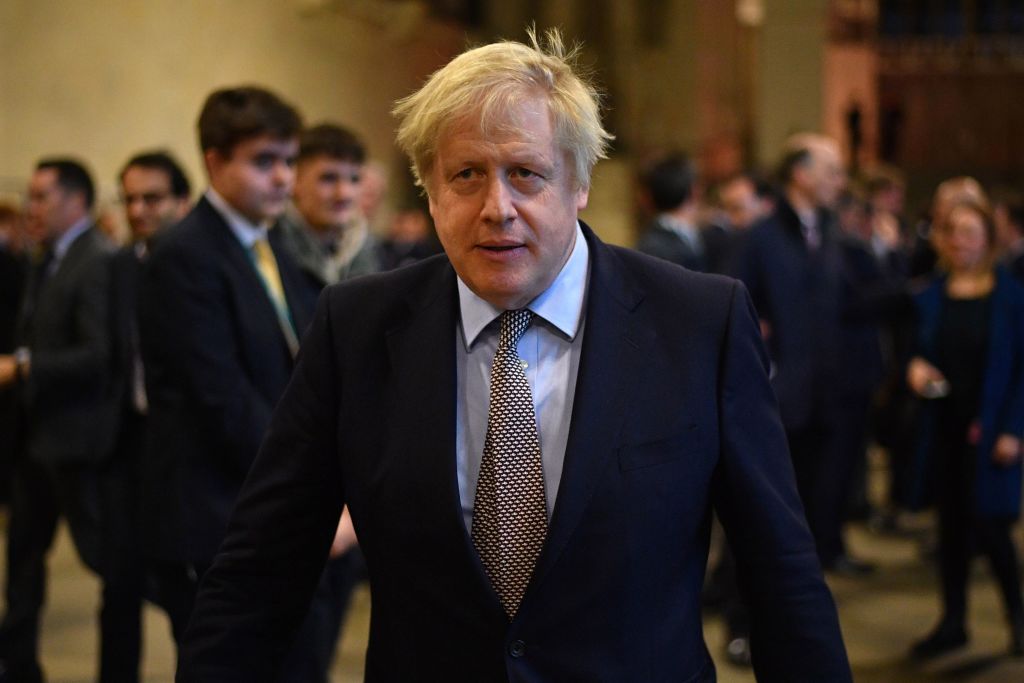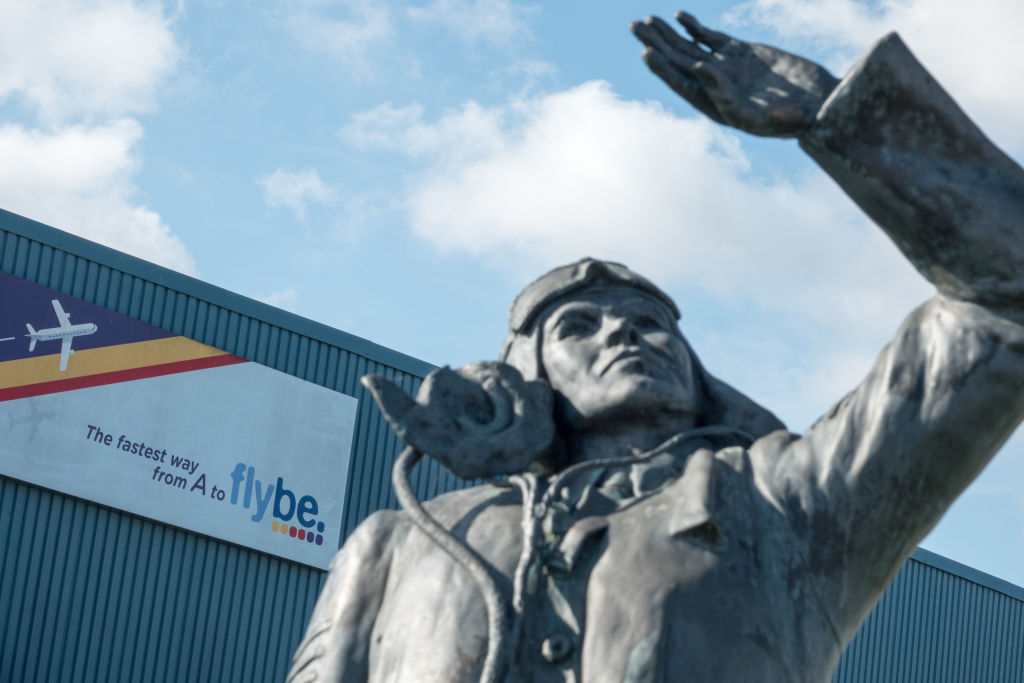Flybe’s last flight: How Europe’s biggest regional airline met its demise

At 8.30pm on Wednesday evening, passengers were still being ushered onto planes bearing the indigo livery of Flybe.
Half an hour later, members of the cabin crew on one of its last ever flights, from Manchester to Belfast, were crying, having just lost their jobs. “Staff in tears. This is so grim,” tweeted Holly Hamilton, a BBC presenter aboard the flight, from the runway. “Plane is just really quiet.”
Such is the nature of airlines going bust. Normality is ripped out from under the feet of employees and passengers alike. People are left stranded in foreign places hoping the government will step in to get them home. Cabin crew and pilots learn that they no longer have a job while taxiing on the runway. It is abrupt.
In the case of Flybe, which operates about 40 per cent of British domestic flights, it was the coronavirus and the subsequent lack of demand for air travel in recent weeks that finally forced it under. Chief executive Mark Anderson said in his parting message to staff that the virus had “put additional pressure on an already difficult situation,” making his firm the UK’s first major corporate casualty of the outbreak.
The truth is, however, that this was a long time coming. Flybe nearly went out of business last year, before being bought out by a consortium including Sir Richard Branson’s Virgin Atlantic. Then, in January, the government was forced to promise another bailout, in the form of a tax delay and a £100m loan as the airline teetered on the brink again. Eventually, however, the deal fell through.
“Coronavirus will likely become the scapegoat for Flybe’s collapse, but it would be obtuse and even dangerous to blame it wholly for the situation,” Alana Gomez, a spokesperson for flight-comparison site Jetcost, tells me. “The airline has been struggling for some time now, and would likely have still gone under without the assistance of the virus.”
Flybe’s tax woes

One factor which the carrier had long blamed for its ropey finances was air passenger duty (APD), a tax on all passenger flights from UK airports, except for the Scottish highlands. Flybe maintained that it disproportionately handicapped its customer base because they had to pay the tax each time they set off from home tarmac. Meanwhile, most passengers at other airlines only take off in the UK, with their return journey departing from a foreign country, meaning they only pay one-way. As a result, one option the government had considered was to cut the tax for Flybe.
However, this incensed two of the most influential airline chief executives in Europe: Willie Walsh and Michael O’Leary. The two boisterous Irishmen, bosses of British Airways owner IAG and Ryanair respectively, railed against what they saw as unfair state aid in favour of their competitor. O’Leary wrote to then-chancellor, Sajid Javid: “If the first critical business decision of your new government is to bail out a loss-making turkey like Flybe, for the sole benefit of billionaires like Richard Branson … then your business strategy is doomed to fail.”
As a result, the government looked increasingly likely to ease APD rules for all airlines at next week’s budget — especially given current projections that the coronavirus outbreak will hit global airlines to the tune of $113bn. “It would make a lot of sense to waive APD for the next nine months to the end of the year to stimulate travel to come back and put more money in the traveller’s pocket to buy an air fare,” says John Grant, analyst at aviation data specialist OAG, in the wake of the Flybe collapse.
It is perhaps ironic, then, that the virus outbreak which eventually stopped Flybe from flying could have precipitated a round of much-needed state aid across the industry. If only it had held on a little longer. Grant tells me: “If it had been three weeks down the road and Flybe had managed to find a way to survive those extra three weeks, they might actually have got some breaks that could have helped them in the longer term.”
In one sense, the failure unravels what could have become something of a Gordian knot for Prime Minister Boris Johnson. The airline’s financial frailties had placed him at an ideological impasse. On one hand, he has repeatedly promised to “level up” the rest of the UK outside London, which made it politically unpalatable to let Flybe — the jewel in the crown for British regional connectivity — go bust. On the other, the Conservatives are the party of the free market. No Tory PM wants to intervene to save a failing company within weeks of being elected.
Besides, promising to bail out an airline which operates five flights between Southampton and Manchester every day hardly screams of a government pulling out all the stops to fight global warming. As Caroline Lucas, Green MP for Brighton, said in January: “Addressing Flybe’s problems by reducing air passenger duty on all domestic flights is utterly inconsistent with any serious commitment to tackle the climate crisis.”
Another one bites the dust

But in the long run, the fact remains that three major British airlines have met this fate in four years, after Monarch in 2017 and Thomas Cook last September. Across those cases, hundreds of thousands of Brits were brought home by the government, in repatriations the size of which had not been seen in the post-war era. Flybe is not on the same scale — in part because most people whose flights were cancelled were already on home turf — but it raises further questions over a long-delayed reform.
Since 2018, successive transport ministers have promised to shake up the rules which govern how airline collapses are handled, a change which could keep planes flying long enough to get people home, even after the carrier’s funds have run dry. A Department for Transport spokesperson points out that these reforms were included in the Queen’s Speech on 19 December. This did not come in time for Thomas Cook’s failure, however, nor for Flybe’s, a delay which Oliver Richardson, national officer of trade union Unite, calls “simply outrageous”.
Insolvency rules aside, one thing has become clear: coronavirus or not, the government misjudged Flybe’s predicament when it promised to save the company in January.
“The airline’s network was fundamentally flawed,” says Grant. “It ran extremely disparate, low-frequency services on many routes, and had a lack of focus and strategy about what its business model was. It was behaving like a low-cost airline, but without the low-costs.”
His analysis runs in direct contradiction to what then-business secretary Andrea Leadsom said about the company in January. Asked why the government decided to help Flybe, she said it was because the airline was “a viable business”.
When I put this to Grant, he retorts: “What would politicians know about airlines?”